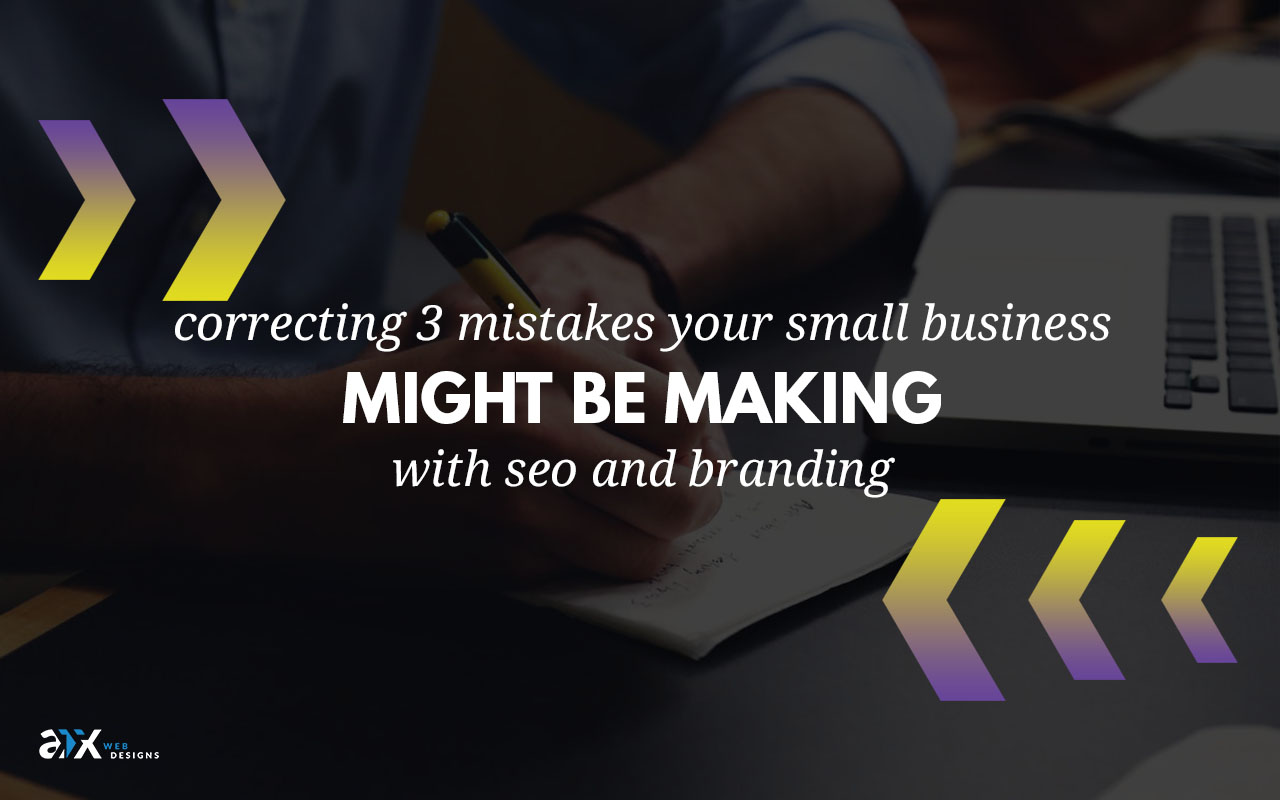Sometimes, in seeking to be a competitor with major players, you underutilized strategies that your small business can capitalize on for SEO and branding.
In the attempts to gain more visibility online, it is often difficult to be certain of the tools to utilize, the methods to target and measuring results effectively, particularly so, when you are consumed with your small business’ daily operations. There may also be budget constraints as well and so a limited margin for error.
All of the above added to the confusing nature of SEO, a field where many companies promise to improve your rankings, but very few able to achieve, often cause many small business owners to wonder about the direction to take with regards to their small business’ SEO. Let us explore some things you do not want to do as a small business professional:
Mistake #1 – Not Selecting A Specific Target Market
It helps to have an area of focus when approaching branding. This area is typically called your niche.
You may believe that gaining ranking for as wide a variety of keywords as is possible would maximize your impact, as your visibility would be high for a variety of search terms. For example, if your business is a bakery, you might face the temptation to target terms like cake making, cake decoration, pastries, bakery, baked goods, cake delivery and so on.
While it is true that all those keywords apply to your business and the variety of keywords may cause you to rank for more search terms, your relevancy for each will be low. When competing with businesses with budgets that are lavish, have content the size of your entire site and a longstanding client base, your moves need to be more calculated and strategic.
Allocating resources to a few keywords, perhaps cake decoration, cake making, and pastries will increase the likelihood of you ranking higher for those particular terms.
Mistake #2 – Underestimating How Important Local SEO Is
In line with the first mistake, you not only need to focus on particular searches but also the area in which those searches are taking place. Having a huge audience is good just ensure it is the right audience.
Take, for example, Wal-Mart, which has a location in nearly every area. A perk that small businesses have over big corporations, is knowledge of the issues and needs of a specific local area that a chain brand without ties locally will hardly be aware of.
As a result, you need to ensure that Google knows your location and uses that information to your best advantage. This results in your business appearing on more search engine result pages, within a very relevant, specific demographic.
A lot of the steps in optimizing local SEO are pretty straightforward. These include creating Yahoo and Google local place pages for your business with detailed address and contact information. When customers post reviews on your place pages this helps to increase your rankings too, because this is among the first things an individual sees after your place page comes up.
Having reviews help to promote your business to prospective customers, and Google’s algorithm takes local reviews into account during ranking, so it is a win-win situation.
Mistake #3 – Starting Late
SEO planning can be overwhelming. It is advantageous to start planning your SEO strategy when you are in the process of developing your business plan.
We will agree that in the early stages of starting your business, you a lot on your plate. You may begin to think that aggressive pursuit of SEO for small business does not need to be undertaken early on in the process.
Truthfully speaking, though, the more time that passes between your startup and your SEO strategy development the harder it becomes to start and finish.
When you leave creating digital content and establishing relationships with other resources on the web (which is very helpful to your rankings) for a later date, you will have more to catch up on and your competitors would have had more time to use these and other tools to get ahead. In a perfect (or nearly perfect world), you would have SEO and digital marketing fitted somewhere in your business plan. If you don’t, get cracking on it as soon as the business starts. When you are competing against large corporations you need to monitor and adjust to content and digital marketing.
Choosing and sticking to your niche, promotion of your location and development of a digital marketing and branding procedure from early stages are all strategies that sometimes get neglected and overlooked within the small business sector. Within a competitive market, just as important as knowing what you have is knowing how to use it. You must be aware of how to use your assets, in relation to your company’s size to gain the best advantage.
Need help with your SEO and digital branding? Contact Us and let’s chat about your situation!

